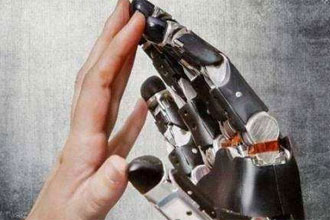
Researchers in Switzerland, Italy and Germany have recently developed a new type of bionic hand that can transmit position and tactile signals in real time, allowing patients to instantly and accurately sense the position of the limb during and after exercise, thereby improving the perception of the body.
The currently used myoelectric prosthesis allows the amputated patient to regain the autonomous motion control of the prosthetic limb using the residual muscle function of the forearm, but still lacks sensory feedback. This means that patients must rely heavily on visual cues and cannot feel that the prosthesis is part of their body and is unnatural to use.
Researchers at the Federal Institute of Technology in Lausanne, Switzerland, the Institute of Advanced Studies in Santa Ana, Italy, and the University of Freiburg in Germany, after 10 years of robotic research, have developed new bionic hands that enable amputated patients to return to the subtle touch of nature.
The researchers implanted electrodes at the stump of the amputated patient to send electrical impulses and re-establish external information flow through internal stimuli. After receiving training, the patient gradually learned how to convert these pulses into proprioception and tactile sensations.
The new device allows the patient to extend the bionic hand to feel the shape, position, size and other information of the object without having to use the eye to view it. At present, this technique has successfully achieved high proprioceptive acuity in two amputated patients, and the success rate of two patients using prostheses to determine the size and shape of four objects has reached 75.5%.
According to the researchers, this sensory replacement device based on intra-neural stimulation provides position feedback and tactile feedback to the patient in real time, and the brain can fully synthesize this information. The patient's ability to process both feedbacks in real time after training is excellent, almost as much as using a real hand.

 영어
영어  중국어
중국어  독일어
독일어  한국어
한국어  일본어
일본어  Farsi
Farsi  Portuguese
Portuguese  Russian
Russian  스페인어
스페인어 





